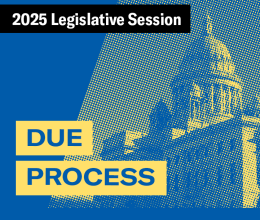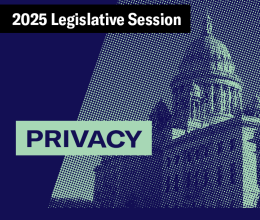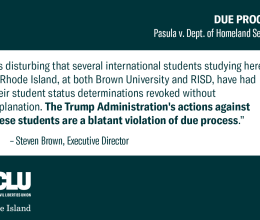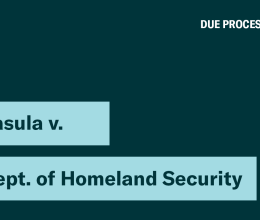Under state law, municipalities can charge no more than $500 for violations of municipal ordinances that do not rise to the level of criminal offenses. Under this legislation, that number could have doubled, allowing municipalities to levy $1,000 for violations of ordinances such as disorderly conduct and panhandling. This seemingly minor change is actually quite dramatic in its consequences — it would formally turn a large number of people charged with minor misconduct into criminals. That is because, under Rhode Island law, an offense punishable by a fine of more than $500 and less than $1,000 is a misdemeanor, while one punishable by a fine of not more than $500 is considered a “violation." As a result, if a person is asked on an application form if they have a criminal record or have ever been convicted of a crime, a person who has only been found guilty of a violation can answer “no.” But if they are convicted of an offense that carries a potential fine of $1,000, they have committed a misdemeanor — a criminal offense — and would have to acknowledge that. The collateral consequences that flow from a criminal record can be enormous. As such, the ACLU of RI opposed this legislation, which died in committee.
Increasing Municipal Fines (H 8208)
Sponsors
Representative Slater
Related Issues
Documents
Related content

LETTER Re: Urging Gov. McKee to Veto S 213A
June 30, 2025
LETTER Re: Providence Noise Ordinance Amendment
June 5, 2025
LETTER Re: $500 Noise Citations to Protesters in Providence
May 23, 2025
Fines for City Ordinance Violations (S 494)
May 19, 2025
Artificial Intelligence Regulations for High-Risk Models (S 627)
May 16, 2025
Statute of Limitations Removal for Child Abuse (H 5909, S 739)
May 9, 2025
ACLU files class action lawsuit challenging terminated student...
April 18, 2025
Pasula v. Department of Homeland Security
April 18, 2025

